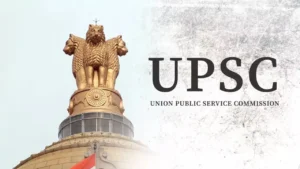Why Some Muslims are Opposed to the Waqf Amendment Bill: Debunking Misconceptions

The Waqf Amendment Bill has been a subject of considerable debate in India, particularly among the Muslim community. While the intention behind the bill is to streamline the management of Waqf properties, a large section of the Muslim population has expressed concern and opposition to the legislation. Much of this opposition stems from misconceptions surrounding the bill’s provisions, its potential impacts on the Waqf properties, and the way it could affect the autonomy of the Muslim community in managing its religious assets. Here, we will explore these concerns and attempt to debunk some of the common misconceptions that fuel this opposition.
Misconception 1: The Bill Will Lead to Government Control of Waqf Properties
One of the most widespread fears regarding the Waqf Amendment Bill is that it would lead to government interference in the management and control of Waqf properties. Some believe that the bill would enable the government to take over these properties, undermining the autonomy of the Waqf Boards and their religious functions.
Reality: The bill does not propose to give the government control over Waqf properties. Instead, it seeks to introduce better management practices and transparency in the administration of these properties. It proposes the establishment of a Waqf Tribunal to resolve disputes, but it does not grant the government direct control over the assets. The bill aims to ensure that Waqf properties are used for the welfare of the community and to prevent illegal encroachments, not to infringe on the rights of Muslims to manage their properties.
Misconception 2: The Bill Will Lead to an Invasion of Privacy
Another fear among Muslims is that the bill could lead to an invasion of privacy, particularly concerning personal data related to the beneficiaries and administrators of Waqf properties. Opponents claim that the bill would enable the government to pry into the internal affairs of Muslim religious institutions.
Reality: The Waqf Amendment Bill includes provisions for the establishment of a Waqf Management System, which is aimed at digitizing and maintaining records of Waqf properties. The goal is to create a more organized system that prevents fraud, encroachments, and mismanagement. The bill encourages transparency, not surveillance. There are no provisions that would violate the privacy of individuals connected to Waqf institutions.
Misconception 3: The Bill is Anti-Muslim
Many critics argue that the bill is another attempt to marginalize the Muslim community and diminish their religious rights. This narrative is largely fueled by the fear that the bill is part of a broader agenda to control or undermine Islamic institutions and practices.
Reality: The Waqf Amendment Bill is not aimed at curbing the rights of Muslims or interfering with their religious beliefs. On the contrary, it seeks to protect Waqf properties from illegal activities such as encroachment and mismanagement, which ultimately harm the community. The bill is about strengthening the Waqf institutions and ensuring that these assets are used effectively for the benefit of the Muslim community.
Misconception 4: The Bill is Being Rushed Through Without Proper Consultation
Opponents of the bill often claim that the government is rushing through the legislation without consulting the Muslim community or religious leaders. This perception has led to a sense of mistrust regarding the bill’s true intentions.
Reality: While there may have been some concerns about the speed at which the bill is being introduced, the government has indicated that the aim is to address long-standing issues related to Waqf properties. The bill itself has undergone various discussions and debates, and consultations have taken place with stakeholders, including Muslim organizations and religious leaders, to ensure that the concerns of the community are heard. The goal is to enhance the efficiency and effectiveness of the Waqf system, not to bypass consultations or disregard Muslim input.
Misconception 5: The Bill Will Disempower Waqf Boards and Trustees
Some opponents argue that the bill will disempower Waqf Boards and trustees by centralizing control over the properties and reducing their authority.
Reality: The bill does not seek to disempower Waqf Boards or trustees. It aims to streamline their functions and enhance their efficiency. The creation of a Waqf Tribunal will provide a mechanism to resolve disputes, but this is not the same as removing power from the boards. In fact, the bill seeks to strengthen the institutional framework surrounding Waqf management, giving Waqf Boards the tools they need to manage properties more effectively and transparently.
Misconception 6: The Bill Will Lead to the Sale of Waqf Properties
A widespread fear is that the bill will lead to the commercialization or sale of Waqf properties, undermining the long-term preservation of these religious assets.
Reality: The Waqf Amendment Bill does not propose any changes to the existing laws surrounding the sale of Waqf properties. In fact, it includes provisions to prevent illegal transactions and encroachments. The aim is to protect Waqf properties, not to sell or commercialize them. The bill’s emphasis is on proper management and ensuring that these assets are used for the welfare of the community.
Conclusion
While the Waqf Amendment Bill has sparked a great deal of debate and concern, many of the fears surrounding it stem from misconceptions rather than the actual provisions of the bill. In reality, the bill aims to improve the management and protection of Waqf properties, ensuring that they serve the community’s interests more effectively. By addressing issues such as encroachments, mismanagement, and transparency, the bill seeks to empower Waqf institutions and protect the resources they manage. It is important for the Muslim community to engage with the bill’s provisions in a thoughtful and informed manner to understand its true impact.
For More News Updates – https://khabarsearch.in/



